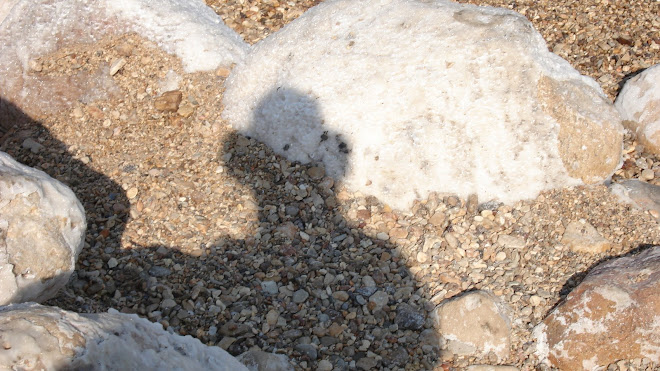While I'm still not back to full speed on keeping this blog up, I invite you to check out the following stories.
First - if you just want a look at what the status quo, an ordinary day, looks like from inside the Palestinian world, have a look at this very short reports of how soldiers treat people at checkpoints. (Not all the time, just when they're having a bad day - and don't forget checkpoints are often totally within the Palestinian territories; they simply serve to hinder freedom of movement. Why? Just because.)
Read here. (That was the 'small picture' piece.)
For a 'big picture' analysis, have a read of this column by Hussein Agha and Robert Malley in the NYT. (
Read here.) I don't totally agree with the title, which sounds like a conclusion--'The two-state solution doesn't solve anything.' I think the two-state solution is a bad but necessary solution. Good fences (i.e. borders, not concrete walls built in your neighbor's backyard) make good neighbors. They won't solve the refugee problem, but they're a first step to stop the delusion that a State calling itself Jewish should, can or will be able to exert total control over a Palestinian population requested to just submit and surrender. This being said, Agha and Malley make some good points about things that go back to 1948 (rather than the border issue which goes back to 1967).
Finally, if you want to watch something that will depress the heck out of you, watch this 9-part documentary about an Israeli Jewish mother who lost her daughter in a suicide attack back in 2002, and about the Palestinian Muslim mother of the teenage girl who carried out the bombing.
See video link on my Facebook or go to YouTube.
I don't want to divulge too much about the last part of the documentary, but what got to me was the total impossibility for the women to understand one another given that one narrative totally ignores the life and reality which frames the narrative of the other. I know "narrative" has gained popularity as a word of our post-modern era, but if there's a story and example showing how it plays out, this is one. Funny thing (not 'funny') is that I could replace myself in discussions with people living with each of these two totally irreconcilable frames of reference. It brought me back to a paper
, called "You should know better: Expression of empathy and disregard among victims of massive social trauma" and written by some excellent social psychologists in Sderot.* Pain sometimes does not unite victims, it can make us deaf and blind to the pain of others.
(To be clear, just because we all build 'narratives' and in this case both women fail to grasp the possibility opened by the other side, doesn't mean that some narratives are not more grounded in a reality, a somewhat objective reality. By this I mean that, yes - there is a violent occupation going on, and asking people to 'take it easy' as if it wasn't ongoing and getting worse is simply not going to work. You can forget about the occupation if you live in Tel Aviv. You do not have this option in Bethlehem.
As insane, immoral and counter-strategic as suicide bombings have been, you almost feel - for example from the exchanges in the documentary - that there's an attempt at validating them as a way of saying to the world "see, the situation does hurt and it is untenable." The opposite of this is Tony Blair, bobbing around and holding court to try and "reform" Palestinian pretend-government institutions--"let's pretend you are a real government which could collect its own taxes and make decisions and let's pretend we are improving your governance, and this is what is going to improve the life of your citizens, and let's stop all this fussing about some occupation. Come on! A drone attack last night? Well, walk on the sunny side of life, old chap!"
A kid with C-4 around the belt - that's a story that tends to drown out the 'narrative' of this silly nonsense. It's still crazy. But maybe that's it. It's all crazy.)
Well - I didn't write my essay, but I can still ramble.
In the meantime, thanks for your patience--
Salaam = Shalom.
Elrig
* Julia Chaitin and Shoshana Steinberg. Journal of Aggression, Maltreatment and Trauma, 7 (2), 197 – 22




